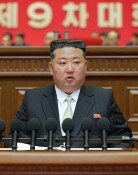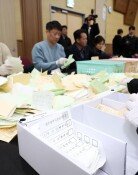[Editorial] Transfer Investigation Authority to the Police but with a Check Mechanism
[Editorial] Transfer Investigation Authority to the Police but with a Check Mechanism
Posted December. 06, 2005 06:47,
The prosecution is showing signs of change, citing that it might transfer the authority to conduct investigations to the police for some crimes that affect public welfare. At yesterdays high public prosecutor and regional prosecutors meeting, the majority opinion was that the proposal of Uri Party could not be accepted but that Cheong Wa Daes proposal could. This can be seen as a step forward for the prosecution, which, ever since Korea came into existence, has absolutely refused to share investigation authority. In comparison with judicial systems of advanced countries and the changes in time, it would be continuously difficult for the prosecution to refuse giving some of its authority to the police for crimes such as traffic accidents, theft, and assault.
Cheong Wa Daes proposal presupposes that the prosecutor is the leader of the investigation, and light crimes that the police can independently investigate will be set by presidential decree. The Uri Partys proposal defines the prosecution and the police as entities of investigation, and it allows the police to investigate independently into nine types of crimes including rebellion, foreign currency, public security, and electoral felons. If the trend of this era is to recognize the independent investigation authority of the police, there is no reason why both proposals cant reach a compromise.
However, whatever proposal is selected, the prosecution, which possesses the authority to indict and issue warrants, should keep the authority to supervise the polices investigation. It is desirable to keep a mechanism that allows the prosecution in on the investigation when those concerned have an objection to the police handling the case, or if the police is conducting it unlawfully and wrongfully. Just as there are some claiming that this is the Prosecution Republic because the powers of the prosecution are too great, if the authority of the police becomes similar and without check mechanisms, there are worries that a Police Republic might arise.
As for the prosecution, it will sense a feeling of loss by transferring the authority to investigate, but it will be embarrassing if the investigation authority issue is seen by Koreans as a battle of government agencies. Both the prosecution and the police should find ways to prepare measures to provide convenient, human rights respecting, and cost efficient investigations.
It is also better for the prosecution to keep the power to investigate high-ranking public officials corruption crimes, since it has the experience and impartiality. It would be right for the ruling party to withdraw the proposal to create a separate high-ranking public official corruption investigation division and let the prosecution conduct the investigations, as it has been doing.






![[송평인 칼럼]‘빙그레 엄벌’ 판사와 ‘울먹이는 앵그리버드’ 판사](https://dimg.donga.com/c/138/175/90/1/wps/NEWS/IMAGE/2026/02/25/133425247.1.jpg)
